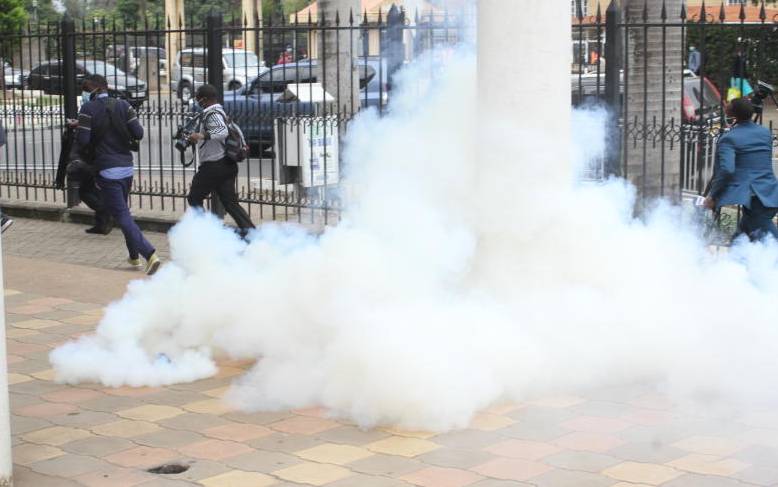A section of journalists flees from teargas lobbed inside city hall on Tuesday, July 28, 2020, after the police prevented a section of MCAs from forcefully entering the office of Speaker Beatrice Elachi to serve her with a notice to vacate office over what they termed as gross misconduct. [Collins Kweyu, Standard]
